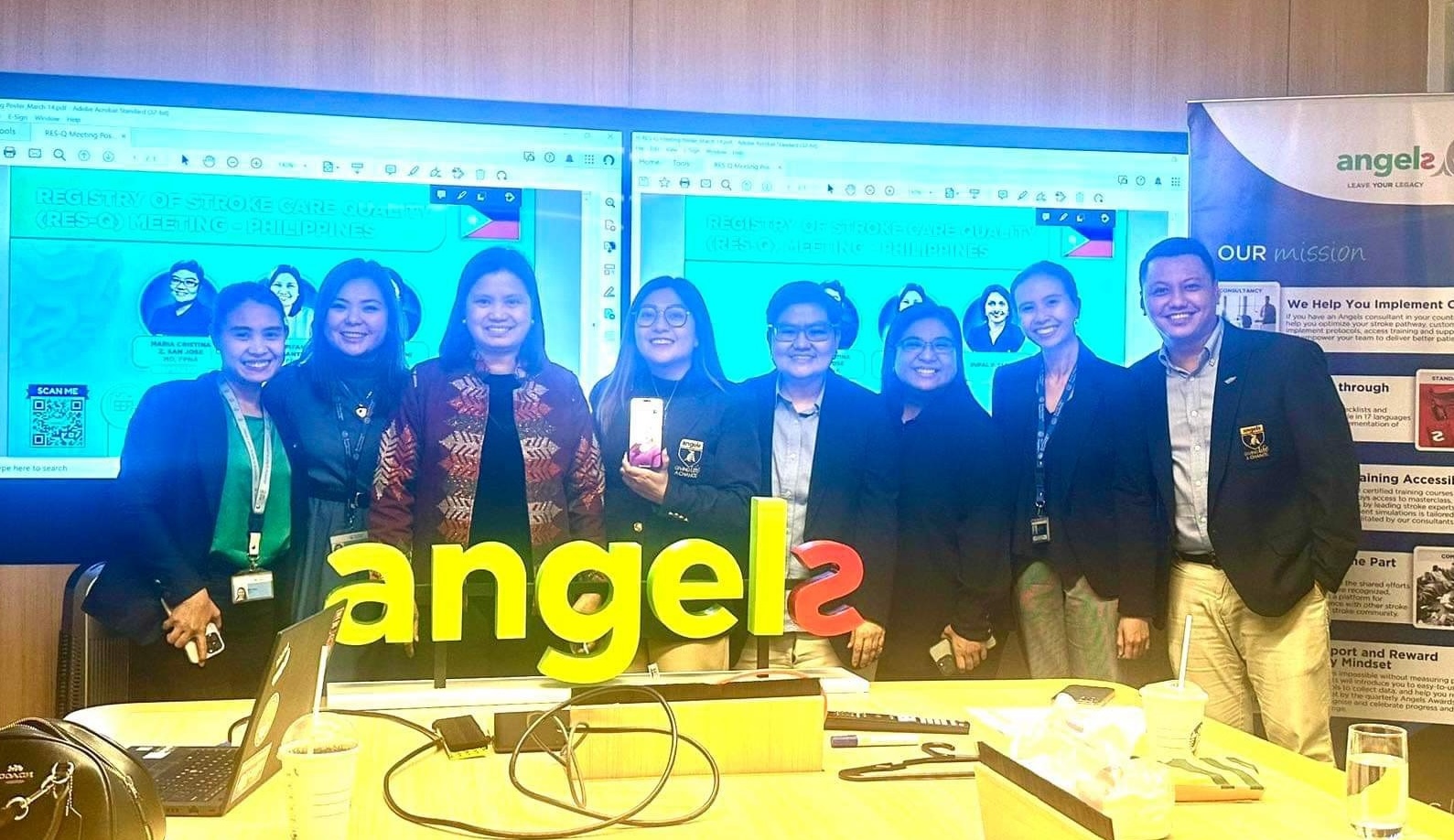
Vào tháng 1 năm 2024, chương trình Đăng kí sổ bộ cải thiện chất lượng đột quỵ RES-Q đã có một câu chuyện để kể. Cơ Đăng kí sổ bộ sắp ra mắt nền tảng hoàn toàn mới, sẵn sàng cho tương lai của họ tại một địa chỉ trang web mới. Nền tảng mới có một số tính năng mới hấp dẫn mà nền tảng trước đó thiếu dung lượng. Những chức năng này bao gồm chức năng đăng nhập một lần để truy cập nhiều tài khoản, thu thập dữ liệu trực quan hơn bằng 15 ngôn ngữ, bảng điều khiển thân thiện với người dùng và khả năng tạo báo cáo theo yêu cầu.
Một chiến dịch đã được triển khai để giúp cộng đồng đột quỵ toàn cầu nhận thức được URL mới và trấn an họ rằng việc di chuyển dữ liệu cũ của họ sẽ bắt đầu ngay khi họ đăng ký lại trên trang web mới.
Trong khi các chuyên gia tư vấn của Angels trên toàn thế giới đã nỗ lực giúp các bệnh viện ở quốc gia của họ điều hướng sự thay đổi, nhóm nghiên cứu ở Philippines đã phát hiện ra một cơ hội. Khoảng tám tháng đã trôi qua kể từ một cuộc họp quan trọng ở Manilla, trong đó các bệnh viện sẵn sàng cho đột quỵ đã được đào tạo thực hành về cách thức - và lý do - sử dụng RES-Q.
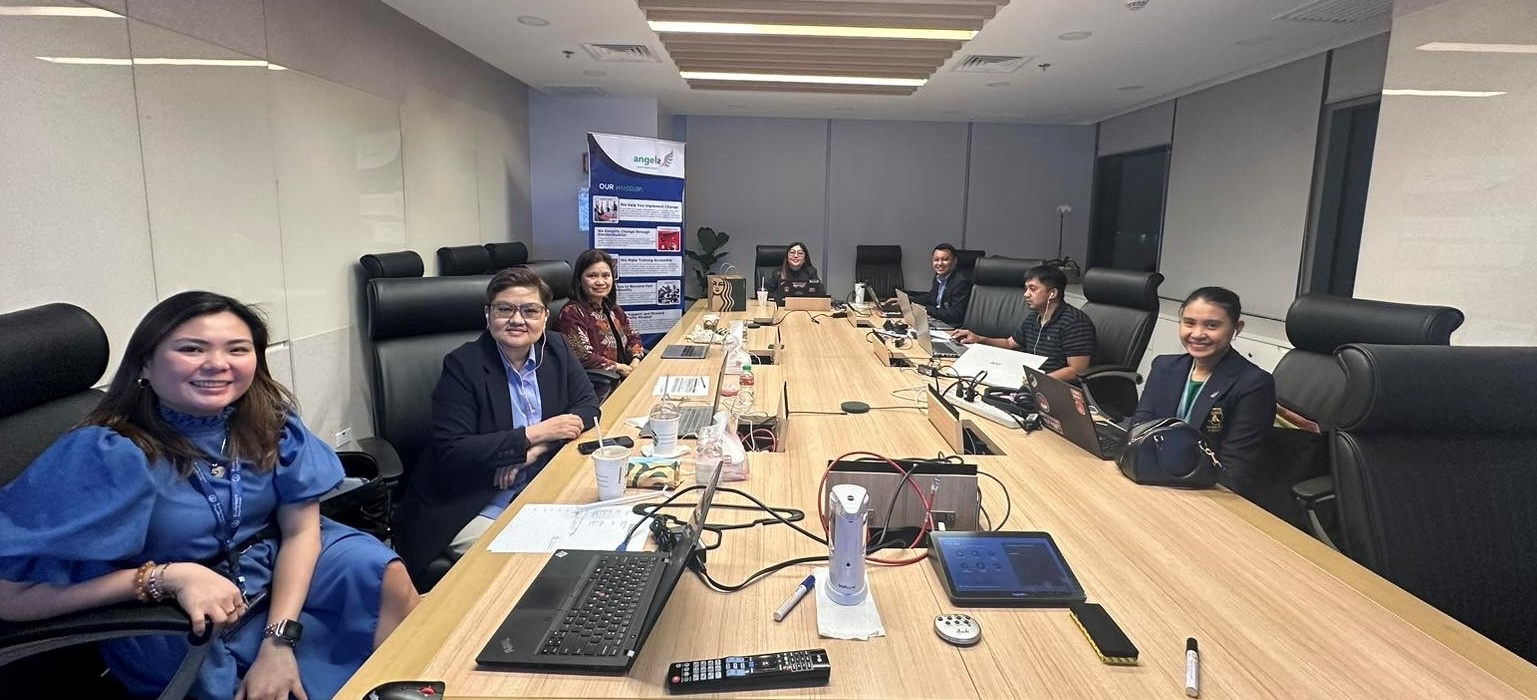
Theo dõi chất lượng là một yêu cầu đối với Chương trình Chứng nhận Bệnh viện Sẵn sàng Đột quỵ Cấp tính (Acute Stroke Ready Hospital, ASRH) mà Hiệp hội Đột quỵ Philippines (SSP) đã triển khai vào đầu năm 2023. Mục tiêu của cuộc họp Manilla là thay đổi nhận thức về quy trình thu thập dữ liệu và bằng cách tập hợp các chuyên gia chăm sóc đột quỵ từ 47 bệnh viện được chứng nhận ASRH tại một sự kiện duy nhất, họ đã thành công trong việc thắp sáng nhiều ngọn nến bằng một ngọn lửa.
Giờ đây, việc ra mắt RES-Q “mới” đã mang lại một cơ hội khác cho một cuộc tụ họp tập trung vào theo dõi chất lượng – lần này được tổ chức trực tuyến để tiếp cận nhiều bệnh viện hơn nữa.
Hội thảo trên web diễn ra vào tối ngày 14 tháng 3 đã thu hút sự tham dự của hơn 300 người tham gia đại diện cho 75 bệnh viện và một lần nữa chứng minh sức mạnh tổng hợp giữa Angels và SSP. Cuộc họp đã được hai chủ tịch SSP trước đây đề cập, những người hiện đang chia sẻ vai trò điều phối viên quốc gia cho RES-Q, Tiến sĩ Maria Epifania Collantes và Maria Cristina San Jose, với tuyên bố kết thúc của chủ tịch SSP hiện tại là Tiến sĩ Maria Socorro Sarfati. Sự kiện chính là một buổi hướng dẫn trực tuyến về nền tảng RES-Q mới do quản lý toàn cầu của RES-Q, Rupal Sedani, kết nối từ Cộng hòa Séc thực hiện.
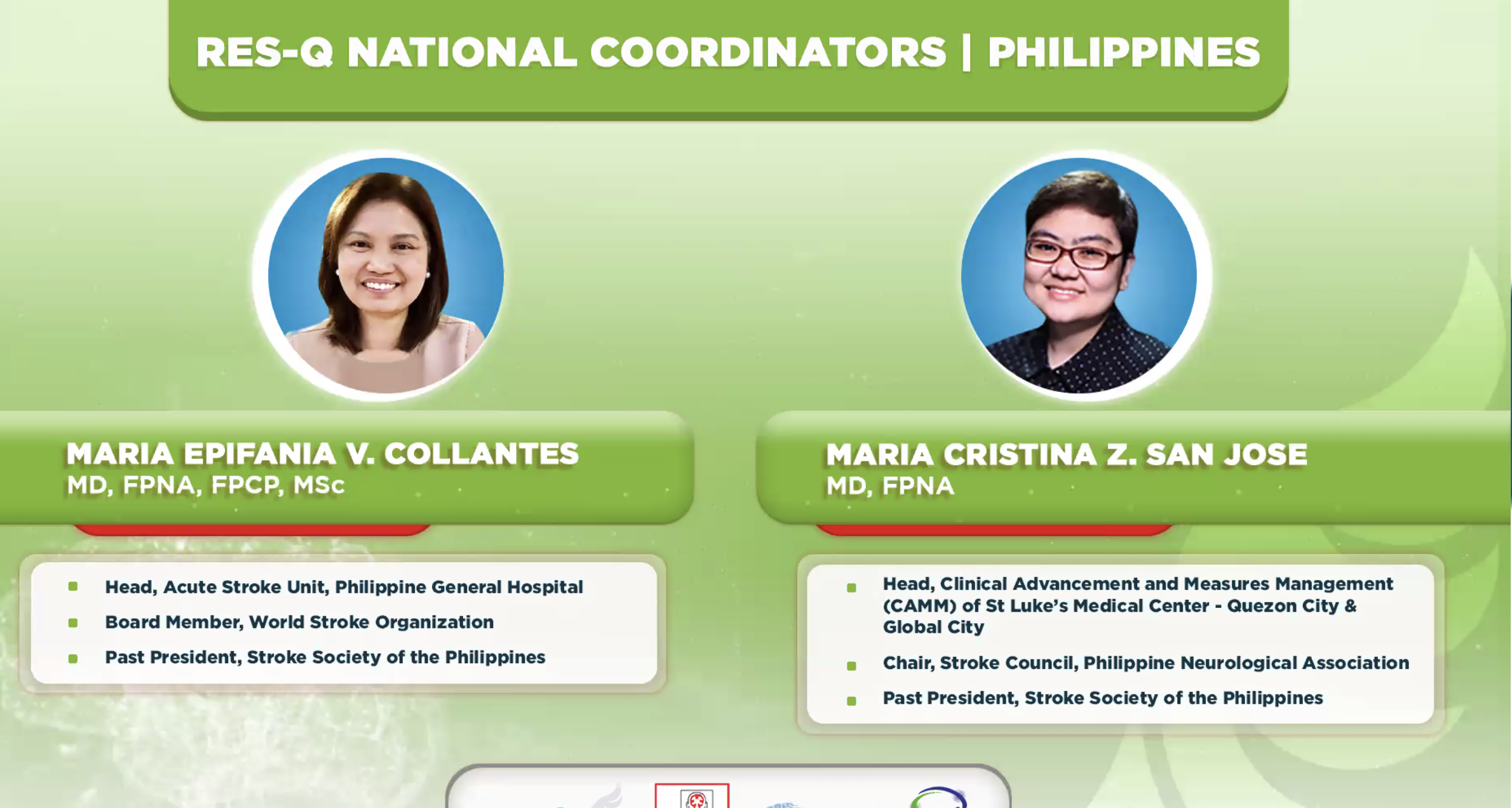
Tại sao giám theo dõi chất lượng
Tiến sĩ Collantes cho biết việc áp dụng RES-Q làm cơ quan Đăng kí sổ bộ quốc gia là cơ hội để cải thiện chăm sóc đột quỵ từ đầu. Thu thập và phân tích dữ liệu mang lại lợi ích cả tại điểm chăm sóc bệnh nhân và liên quan đến thay đổi chính sách. Cũng như xác định những thiếu sót và thách thức ở cấp bệnh viện, theo dõi chất lượng có thể tác động đến chính sách bằng cách cung cấp dữ liệu về các yếu tố nguy cơ và đặt ra những vấn đề như chênh lệch giới tính và sự khác biệt kinh tế-xã hội và khu vực. Nó có thể giúp tiết lộ nguyên nhân gây chậm trễ trong điều trị, cải thiện thời gian và kết quả đột quỵ, xu hướng biểu đồ và cuối cùng dẫn đến giảm tỷ lệ tử vong.
Tuy nhiên, cần phải có dữ liệu đầy đủ và chính xác để có được bức tranh rõ ràng về chăm sóc đột quỵ trên toàn quốc.
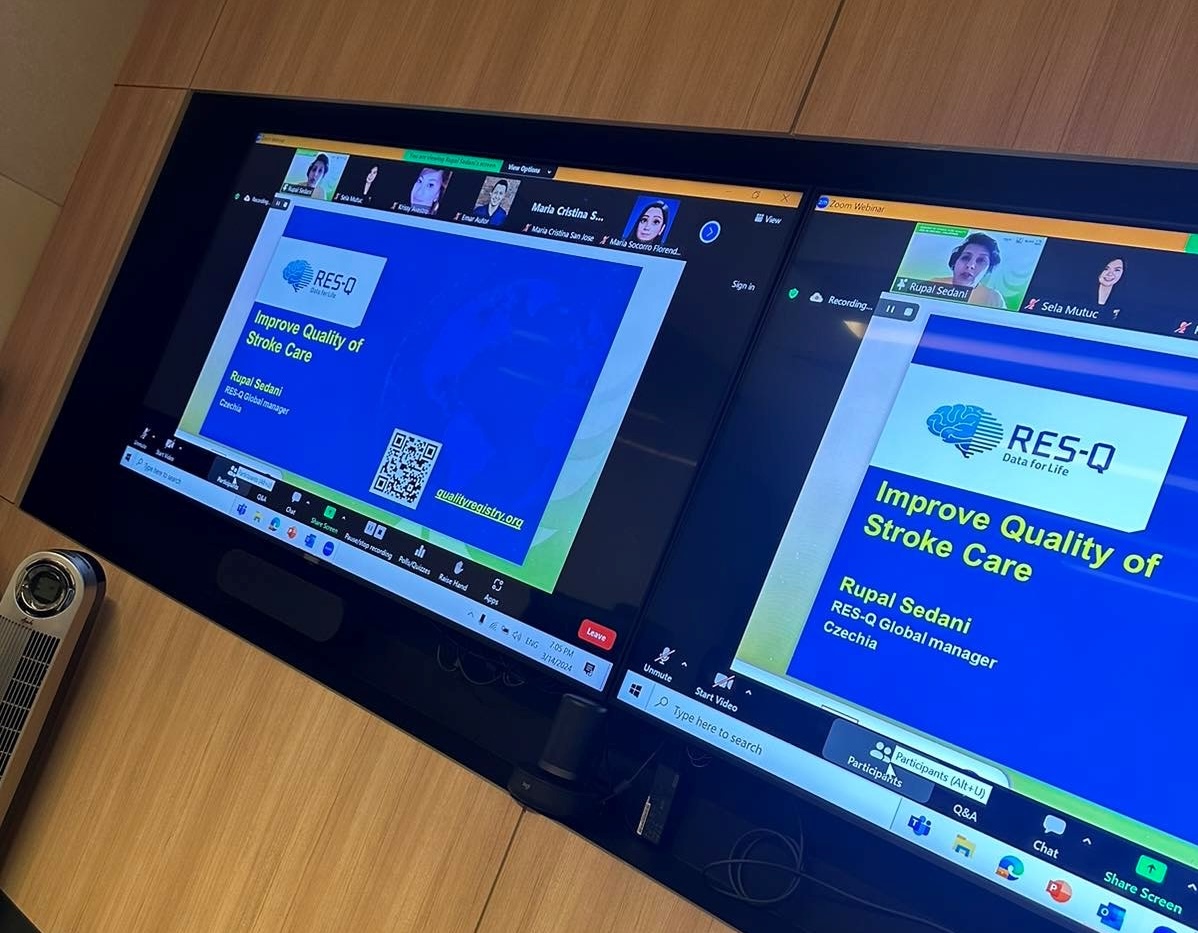
Tiến sĩ San Jose cho biết việc sử dụng RES-Q là một yếu tố thúc đẩy chính trong việc cải thiện chất lượng và chăm sóc sức khỏe dựa trên bằng chứng ở Philippines. Giám sát chất lượng là một trong những chiến lược chính để thúc đẩy và lồng ghép chăm sóc sức khỏe dựa trên bằng chứng, có nghĩa là đảm bảo rằng toàn bộ hệ thống cung cấp dịch vụ chăm sóc sức khỏe được dựa trên các nguyên tắc dựa trên bằng chứng.
Giám sát chất lượng cho phép xem xét hệ thống chăm sóc theo các tiêu chí rõ ràng, Tiến sĩ San Jose nói. Dữ liệu vừa đẩy vừa kéo cải thiện chất lượng bằng cách giúp xác định và phân tích các vấn đề. Thông tin thu được là cơ sở để ra quyết định và đưa ra quyết định hành động.
Việc thu thập dữ liệu cũng cho phép so sánh các kết quả và quy trình so với các đối thủ cạnh tranh và các nhà lãnh đạo trong ngành đã thúc đẩy động lực làm tốt hơn.
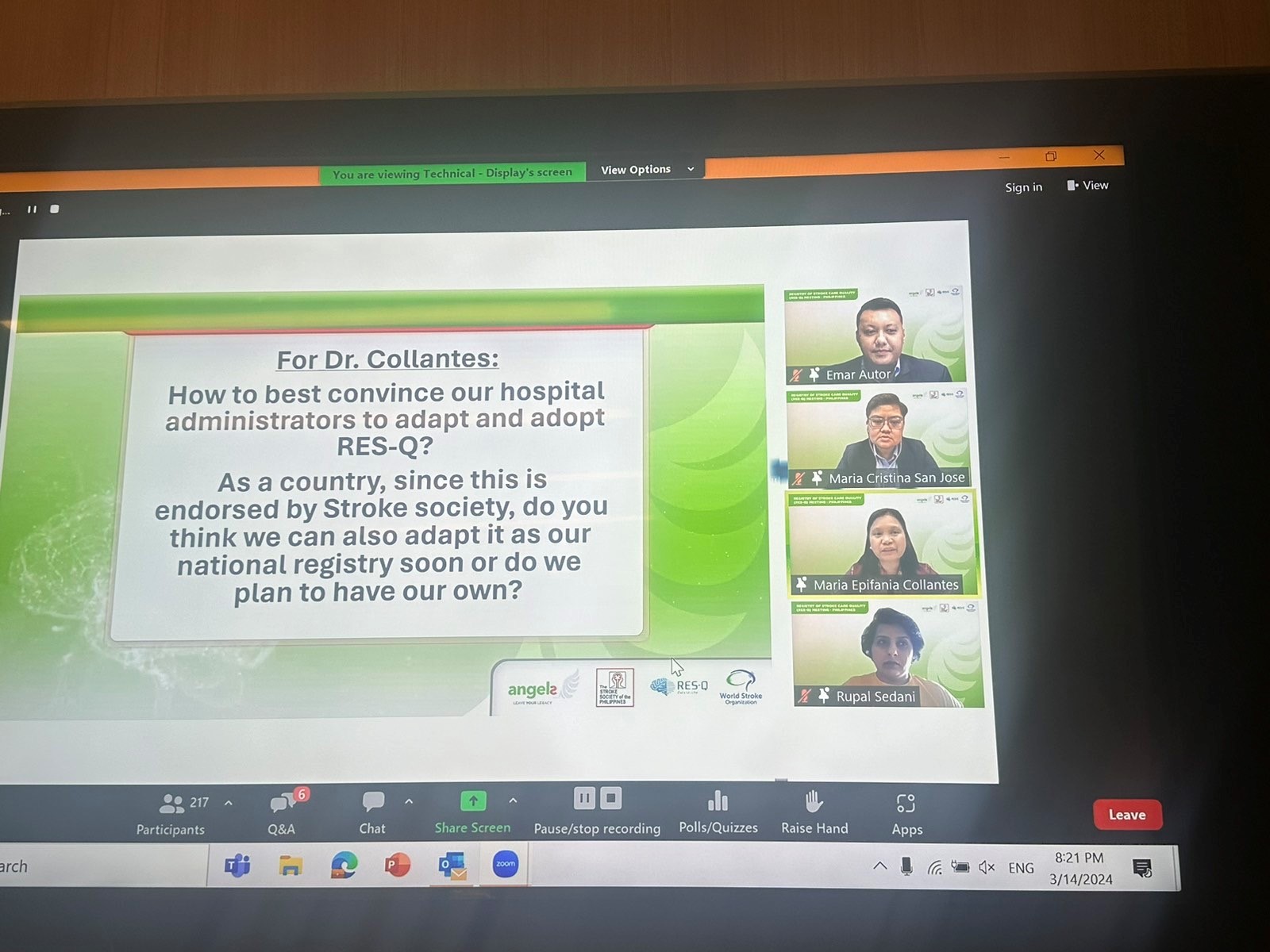
Tạo thói quen
Thời gian đặt câu hỏi sau chuyến tham quan ảo của nền tảng RES-Q nâng cao và thân thiện với người dùng đã mang lại và mang lại những hiểu biết bổ sung:
Hỏi: Làm thế nào để thuyết phục các quản trị viên bệnh viện áp dụng RES-Q?
Bác sĩ Collantes: Hãy cho họ biết về các lợi ích và chỉ cho họ cách sử dụng dữ liệu để cải thiện chăm sóc đột quỵ.
Hỏi: Philippines có đăng Đăng kí sổ bộ riêng không?
Bác sĩ Collantes: RES-Q là cơ Đăng kí sổ bộ đột quỵ quốc gia của chúng tôi. Nó được quốc tế công nhận và cung cấp phản hồi theo thời gian thực cho phép cải thiện.
Hỏi: Ai nên phụ trách RES-Q tại bệnh viện của chúng tôi?
Tiến sĩ San Jose: Xác định người ủng hộ thay đổi của bạn – người cam kết sử dụng dữ liệu để cải thiện chất lượng.
Hỏi: Cách tốt nhất để báo cáo và truyền đạt kết quả theo dõi chất lượng tại khoa hoặc bệnh viện của bạn là gì?
Câu trả lời cho câu hỏi này là trọng tâm của việc cam kết cải thiện chất lượng liên tục và kết quả tốt hơn cho bệnh nhân. Chỉ dài bốn từ, nó chứa một lời khuyên mà, nếu được các bệnh viện đưa vào, sẽ hoàn thành mọi thứ mà bất kỳ hoạt động theo dõi chất lượng nào, bao gồm cả hội thảo trên web này, đều nhằm đạt được.
Bác sĩ San Jose không ngần ngại trong giây lát: “Hãy tạo thói quen”, cô nói.


